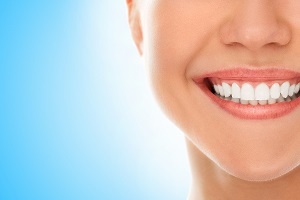Dry Mouth
 If you are having problems with dry mouth contact Dr. Carol Jin in San Ramon, California. While occasional dry mouth due to nervousness or stress is not a problem, chronic and continuous dry mouth may be an indication of a more serious condition which should be diagnosed and treated by your dentist. . If you are not producing enough saliva, oral bacteria cannot be washed away. This leads to tooth decay, infection, and tooth loss, as well as poor absorption of the minerals needed to strengthen your teeth.
If you are having problems with dry mouth contact Dr. Carol Jin in San Ramon, California. While occasional dry mouth due to nervousness or stress is not a problem, chronic and continuous dry mouth may be an indication of a more serious condition which should be diagnosed and treated by your dentist. . If you are not producing enough saliva, oral bacteria cannot be washed away. This leads to tooth decay, infection, and tooth loss, as well as poor absorption of the minerals needed to strengthen your teeth.
Symptoms of Dry Mouth
There are many signs that something may be wrong with your oral health. If you are currently noticing one or more of these symptoms, we can help.
- Dry, red, sore or tingling tongue.
- Bad breath.
- Sticky feeling in your mouth or throat.
- Mouth sores and cracks.
- Frequent thirst.
- Sore throat and hoarseness.
- Difficulty tasting, chewing, swallowing and speaking.
Any one of these symptoms alone may not indicate that you have a serious problem. Visit us to find out what is going on and how to get some much-needed relief.
Causes of Dry Mouth
Some causes of dry mouth may be temporary. Others are unavoidable and the result of life choices or the passing of time on the body.
- Medications
- Aging
- Cancer Therapy
- Nerve Damage
- Autoimmune and Other Disease
- Tobacco Use
- Excessive Alcohol and Caffeine Consumption
- Snoring
No matter the cause, we can help you find solutions for dry mouth.
Dry Mouth From Medications And Aging
Many common prescription and over-the-counter drugs are a leading cause of decreased saliva. These include medication for high blood pressure, depression, pain and allergies. While dry mouth is not a normal part of the aging process, it is common among older adults, usually because of the number and type of medications they are taking.
Illness And Injury
Chemotherapy or radiation therapy can cause lingering dry mouth symptoms due to thickening of the saliva or damage to the salivary glands. An accident that causes head or neck injuries may damage the nerves that signal your salivary glands to produce saliva. Conditions such as Sjogren’s syndrome, HIV/AIDS, Parkinson’s, Alzheimer’s and diabetes can lead to dry mouth.
Life Choices And Oral Health
Cigarettes and chewing tobacco can cause blocked salivary glands, leading to dry mouth and resulting in bad breath, tooth decay, mouth sores, gum disease and a diminished sense of taste. Alcoholic and caffeinated beverages, such as coffee, tea, and cola, can dry out your mouth by causing frequent urination and water loss.
Treatment for Dry Mouth Today
The first step in treating dry mouth is to determine the underlying cause by making an appointment with Dr. Jin. She can diagnose and treat dental problems that may be contributing to your dry mouth. She may also refer you to your physician for further treatment of any medical problems, such as changing your medications or prescribing new medication to stimulate your salivary glands. Contact Dr. Carol Jin today to protect your oral health and overall well-being.



